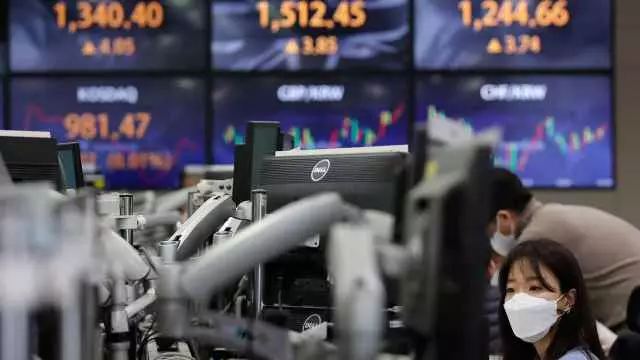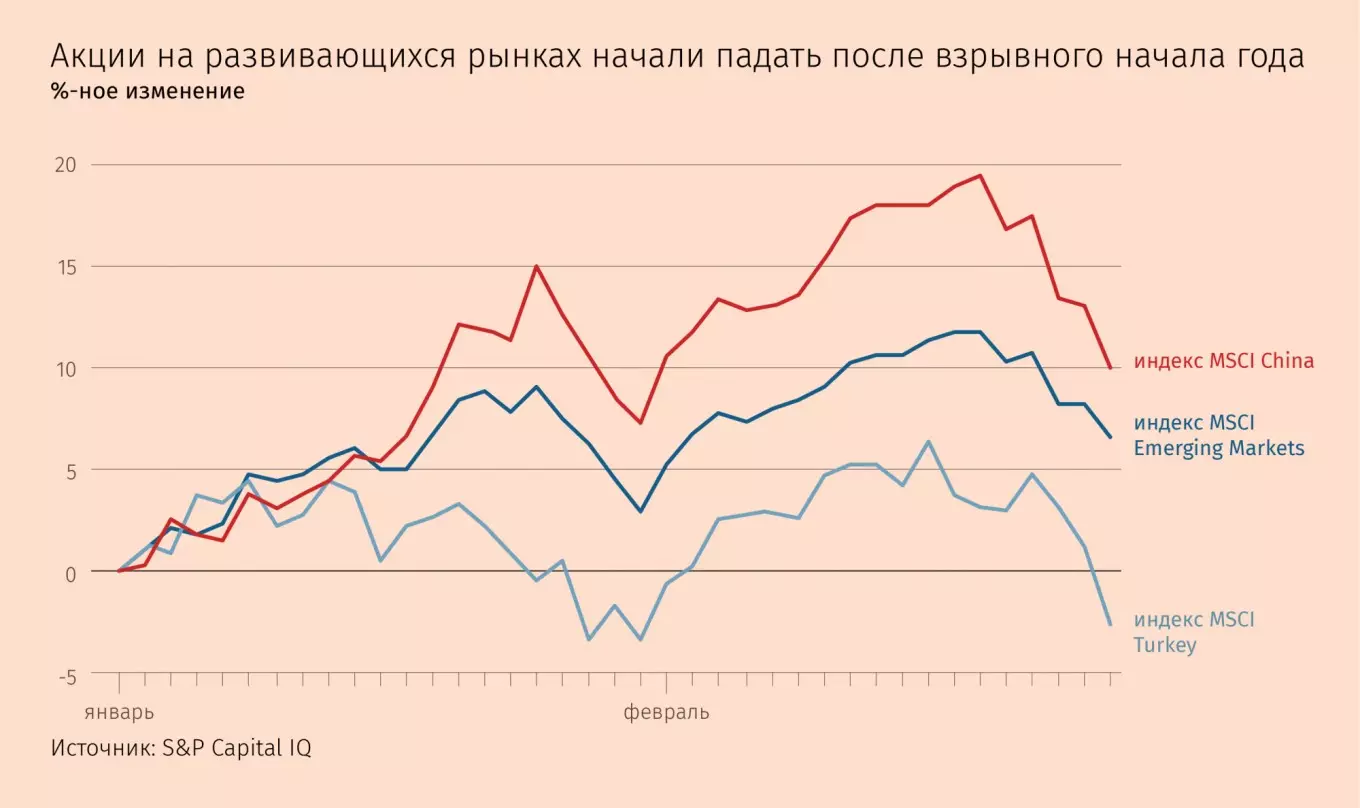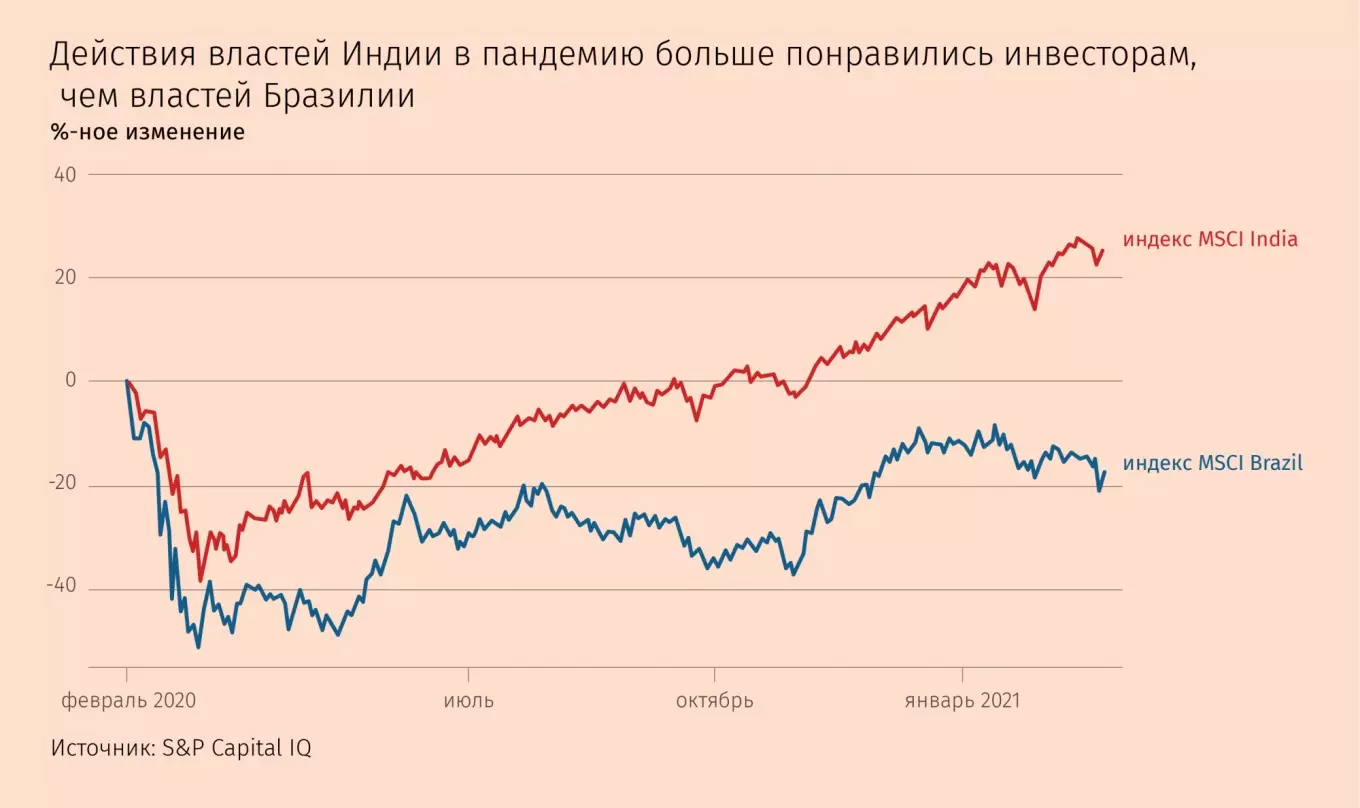
Rally in emerging markets, which highly raised prices for their assets from the minima of coronacrisis last spring, faced the first serious test for strength. The growth of market interest rates in the United States and other developed countries forced investors to recall the events of 2013, when the statement of the Federal Reserve System on the willingness to turn the money incentive program provoked capital from emerging markets.
Sellers took overThe MSCI Emerging Markets index, which includes the shares of companies 27 developing countries, rose from the March bottom almost 90% to the historic peak last week. The growth was largely due to the desire of investors to obtain an increased yield in a situation where large-scale stimuli of central banks led to a decrease in interest rates in developed markets to historical lows.
However, the fall in the prices of state bonds in these markets from the beginning of 2021, provoked a sharp increase in profitability, began to have a negative impact on emerging markets. The MSCI EM dollar index fell from a peak by 5%, similar country indices decreased noticeably - from China to Turkey.
"There is no doubt that the growth of yields around the world begins to reflect on the markets of other assets. The latter that we now need is a large-scale sale in the markets of bonds and stocks, "says Wine Tin, a Strategy Director on the Global Monetary Markets Markets Brown Brothers Harriman.

Some analysts compare the current situation since 2013, when growth in emerging markets, largely provided with ultra-brass Money Policy Fed, broke out when she decided to tighten it. According to Tina, this time the Fed may try to assure the markets that the extraordinary stimulating measures taken to combat the effects of the pandemic will be very slow and gradually.
While the pressure of sellers grows. China's stock market, showing some of the best results thanks to the rapid restoration of the country's economy, asked hard for the last week. The local index of shares of the largest CSI 300 companies, which took place at the auction of February 18 to 5931 points, fell to the closure of Friday to 5336.8 (a decrease of 10%). CHINEXT technological index on the Shenzhen Stock Exchange lost 13%.
The MSCI Dollar Index fell by 8% from February 15.
Meanwhile, the Brazilian BOVESPA index, which has already dropped from the beginning of January, in recent days collapsed by almost 7%, when the President of Zhair Blantar was dismissed Petrobras Oil Company General Director, allegedly keep the rise in gasoline prices and appointed general instead. Shares of Petrobras itself fell by more than 20%.
Russian Mosbier and RTS indices have reached maxima on January 11-15. Then they decreased, but in mid-February, returning to historical marks, they tried to overcome them. It did not work. A decrease with maximum levels by 15.30 at the auction on Friday was 4-6%.
Fundamental changesSome investors and analysts believe that good prospects for the restoration of the economies of developing countries after vaccination will translate risks associated with increasing market interest rates in the world. "You can, of course, argue about how much the quarters of a lost or reduced income will be, but taking into account the vaccination, the light at the end of the tunnel is already quite visible, says Tom Clark, partner and manager of the William Blair Investment Management portfolio. "This is exactly what radically changes the situation in the stock market and currencies of developing countries" for the better, he believes.
Moreover, Clark believes that fundamental changes occur. Before the pandemic against emerging markets, several factors operated: protectionism in the United States and a number of other countries, the growth of tension between the United States and China, uncertainty in connection with Brexit. Now all these problems are more or less permitted, according to Clark. "For several years there was anxiety about the tough landing of the Chinese economy, and - so on: even last year she showed good growth," he adds.
Not all developing countries, however, will come out of a pandemic in good shape. One of the important factors that will define the prospects for their development is the ability to provide productive investments.
Division on winners and losersAccording to the analysis conducted by recent Financial Times, foreign direct investment (FDI) fell last year in the world, but kept at a good level in Asia. In China and India, for example, they rose by 4% and 13%, respectively. While in Africa and Latin America, a strongest fall among all regions was noted in many components of FDI, including mergers and acquisitions, project financing and investment in projects implemented from scratch (which create jobs).
Investors also react positively to anti-crisis financial assistance provided by national governments. India, in particular, increased government spending on infrastructure by 50% compared with the average for the last 10 years. In Brazil, where such investments remain at a low level for more than a decade, the main answer to the pandemic has become subsidies for consumption - a step that is beneficial for the authorities from a political point of view, but less significant to ensure development and long-term economic growth.

Paul Cornbillee, a mellive portfolio in emerging markets in Boston Partners, calls a coronavirus pandemic "a large-scale deforming event that creates winners and losers by countries and sectors depending on their reaction to the Cake."
Excessive expectationsAs in developed markets, developing investors pay close attention to technological companies. Over the past year, TESLA shares rose by 350%. Whereas the shares of her Chinese competitor NiO, also appealing in New York, soared by more than 1000%.
In some sectors, investors laid excessive expectations regarding future growth in prices, Cornbill is worried, therefore quotes and estimates of the value of a number of companies seem to be overestimated. He sees the ability to earn in such sectors, as, for example, regional airlines, which many investors have almost written off the bills due to restrictions on movement.
"Now we are dealing with the consequences of shock from Kovida. From the point of view of the investor, they have not ended yet, "says Corngilel.
Translated Mikhail Overchenko
